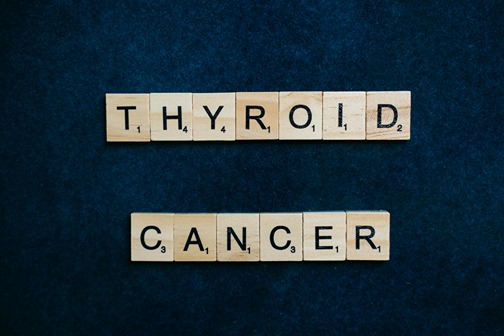Photo by Anna Tarazevich:/pexels
Thyroid cancer, particularly the aggressive and rare types like anaplastic thyroid cancer (ATC) and medullary thyroid cancer (MTC), presents significant treatment challenges. Unlike common forms of thyroid cancer, these variants are resistant to standard therapies and often spread quickly. Fortunately, medical advancements offer new hope with innovative treatments aimed at managing and potentially reducing the impact of aggressive thyroid cancers. Let’s explore some of the most recent options:
Targeted Therapy
- What It Is: Targeted therapy uses drugs designed to specifically attack cancer cells by focusing on certain genes, proteins, or the tissue environment that contributes to cancer growth.
- How It Works: For thyroid cancers, medications like Lenvatinib and Sorafenib are FDA-approved and work by inhibiting pathways responsible for cancer growth. These therapies are particularly useful for patients whose cancer does not respond to radioactive iodine treatments, a common treatment for thyroid cancer.
- Effectiveness: Targeted therapies have shown to extend survival in many cases of aggressive thyroid cancers by slowing tumor growth and controlling the spread of cancer cells.
Immunotherapy
- What It Is: Immunotherapy helps the body’s immune system recognize and destroy cancer cells more effectively.
- How It Works: Drugs like Pembrolizumab and Nivolumab are examples of checkpoint inhibitors that “unblock” the immune system, allowing it to attack cancer cells. For aggressive thyroid cancer types like ATC, which is often resistant to chemotherapy, immunotherapy can sometimes be effective in shrinking tumors and managing symptoms.
- Effectiveness: While immunotherapy doesn’t work for all thyroid cancer patients, those who respond often experience long-term benefits. Clinical trials are ongoing to determine the most effective immunotherapy combinations for various thyroid cancer types.
Radioactive Iodine (RAI) Treatment Enhancements
- What It Is: Radioactive iodine is a conventional treatment, but it’s not effective in all types of thyroid cancer, especially aggressive forms.
- Recent Advances: New research focuses on making cancer cells more “iodine-avid” or responsive to RAI treatment. Combining certain medications with RAI therapy, like Selpercatinib and Pralsetinib, can improve its effectiveness for previously resistant cancers.
- Effectiveness: When successful, this enhanced RAI approach allows for a higher concentration of radioactive iodine in the cancer cells, potentially leading to better outcomes for patients.
Genomic Profiling and Precision Medicine
- What It Is: Genomic profiling analyzes a patient’s specific cancer cells to identify unique mutations, guiding the selection of the most effective treatment.
- How It Works: In aggressive thyroid cancers, doctors can look for mutations in the RET, BRAF, or RAS genes. Knowing these mutations allows for precision medicine, where therapies target the exact genetic abnormalities driving cancer growth.
- Effectiveness: Patients with targeted mutations often respond well to this personalized approach, allowing for tailored treatment that reduces side effects and improves outcomes.
Combination Therapy Approaches
- What It Is: Using multiple therapies together to maximize treatment efficacy.
- Current Combinations: For example, combining targeted therapy with immunotherapy has shown promise in clinical trials, as it attacks cancer on multiple fronts. Studies are also examining combinations of targeted drugs and chemotherapy for patients with very aggressive cancers.
- Effectiveness: These multi-faceted approaches are still being tested but have shown promising early results, particularly for patients with high-risk, treatment-resistant thyroid cancer types.
Conclusion
Advancements in targeted therapy, immunotherapy, genomic profiling, and combination treatments are transforming the outlook for patients with aggressive thyroid cancers. These innovative approaches provide renewed hope, especially for individuals with cancers that do not respond to traditional treatments. While much progress has been made, ongoing research and clinical trials continue to enhance our understanding and effectiveness in treating aggressive thyroid cancer. Patients facing such a diagnosis should consult with their oncologists to explore the latest treatments and consider clinical trials.
Read more about cancer:What is treatment of stage 4 liver cancer
Similar FAQ
What is targeted therapy for thyroid cancer
Targeted therapy uses drugs to specifically target cancer cells without harming healthy cells.
How does immunotherapy work in treating thyroid cancer
Immunotherapy helps the immune system recognize and destroy cancer cells more effectively.
Can radioactive iodine treat aggressive thyroid cancer
In some cases, enhanced RAI therapies make aggressive thyroid cancers more responsive.
What is genomic profiling in cancer treatment
Genomic profiling identifies genetic mutations in cancer, guiding precision medicine.
What new options are available for treatment-resistant thyroid cancers
Combination therapies, including immunotherapy and targeted drugs, offer promising options.

